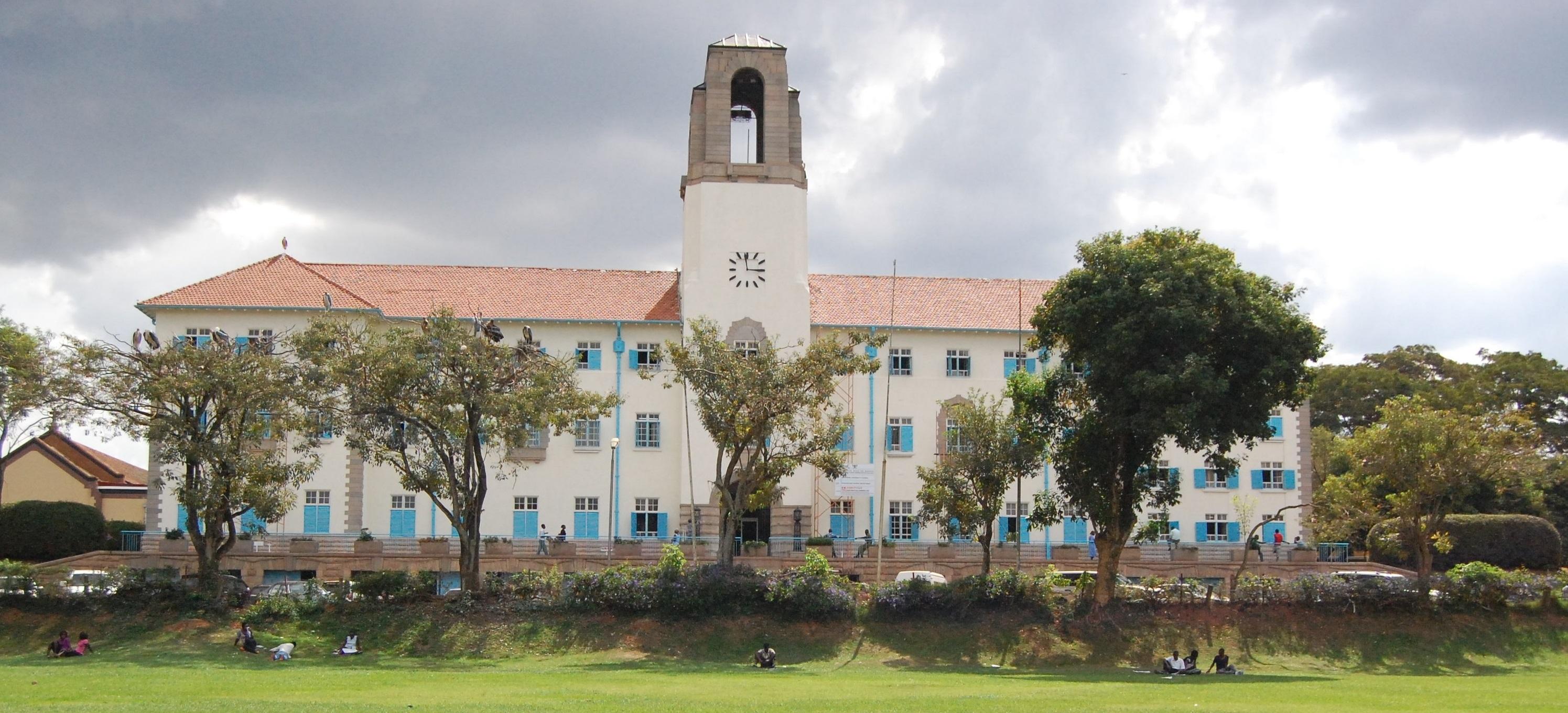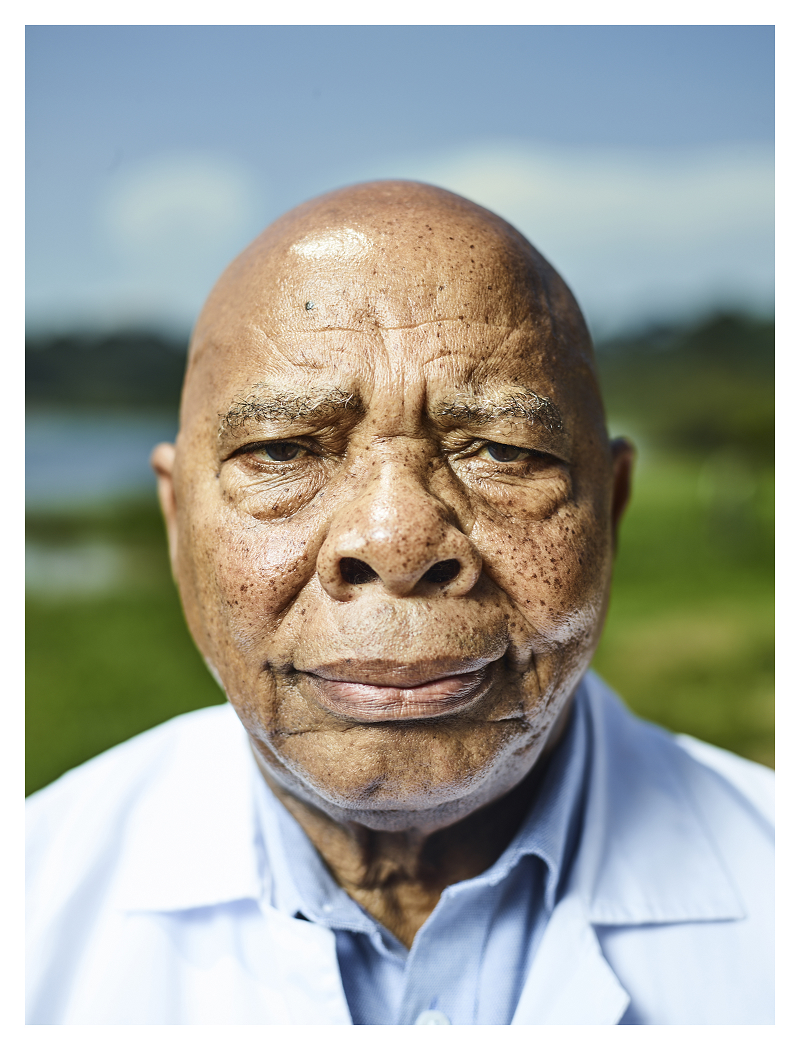When you think about the kind of artworks that a 500-year-old organisation might have in its collection, you might well think of formal, pre-1900 oil paintings. In the case of the RCP’s portrait collection, you would be right; but the museum also holds a small and expanding collection of modern portraits.
Perhaps the most memorable of these is this striking photographic portrait of professor Evarist Njelesani FRCP (b.1945), by Jessica van der Weert. Although the museum has various small portrait photographs from the late 19th and 20th centuries, this is the only post-2000 photographic work currently in the collection. It reflects both the contributions to medicine of Prof Njelesani as an influential contemporary doctor, and an important area of work in which the RCP has been involved in recent years, the East, Central and Southern African College of Physicians (ECSACoP).
The region covered by the ECSACoP comprises six countries and is home to more than 200 million people; Kenya, Malawi, Tanzania, Uganda, Zambia and Zimbabwe. In the ECSA region the population often has very limited access to trained physicians. World Health Organization figures show that nowhere has more the 20 physicians per 100,000 people, and some areas have much less.
Established in December 2015, the ECSACoP is changing the way in which postgraduate medical education is delivered and assessed in East, Central and Southern Africa. The ECSACoP training centres in Malawi, Uganda, Zambia and Zimbabwe teach a curriculum developed by leading physicians from the area to address the region's specific health challenges, as well as equipping trainees with the skills to be effective teachers and leaders. Its aims include increasing the number of doctors in training and consolidating standards across the region in order to dramatically improve health outcomes for all, especially those in remote or difficult-to-reach communities.
'Africa has 10% of the world’s population, bears 25% of the global disease burden but has only 3% of the global health workforce.'
Prof Njelesani was instrumental in the establishment of the college, which grew out of discussions he had with colleagues in 2012. Njelesani was selected as chair of the foundation group for the new college, and was key in building relationships with stakeholders such as the College of Surgeons for the ECSA region, governments, and the RCP London. The ECSACoP was officially inaugurated in 2015 and has been developing and expanding since then. Prof Njelesani served as the ESCACoP’s president from 2016 until 2019.

In 2017 as the ESCACoP was preparing to welcome its first students, photographer Jessica van der Weert was alerted to the project by Liam Fisher-Joes, development director for the college. Working with the ECSACoP to create a series representing their goals, van der Weert photographed nine of the physicians involved in the college’s work. A number of the other portraits produced can be seen on van der Weert’s website, including Dr Tamara Phiri, President of the Malawi College of Physicians. Having met RCP CEO Dr Ian Bullock in Uganda while shooting the photos, van der Weert later gave the print of Prof Njelesani to Dr Bullock, who donated it to the RCP Museum.
Although the RCP’s geographical remit covers England and Wales, our members and fellows come from all over the world, with 19% of members being based outside the UK. RCP Global focuses on working with doctors around the world to improve medical standards and training.
The RCP museum aims use its collections to engage and inspire people with the history of medicine and the role of physicians within it. Portraits like those of Prof Njelesani represent the experience, value and global impact of physicians, and collecting objects like this allows us to continue to tell the multi-faceted story of medicine into the future.
Lowri Jones, senior curator
Sources used in writing this post:
References [all accessed 12 June 2020]:
- 2018.4, Evarist by Jessica van der Weert http://rcp-asp.adlibhosting.com/Details/collect/9405
- 'A novel approach is called for': An interview with Professor Evarist Njelesani, 2015. https://www.rcplondon.ac.uk/news/novel-approach-called-interview-professor-evarist-njelesani
- Innovation in Medicine 2018: From surviving to thriving: culture in healthcare. https://www.rcplondon.ac.uk/news/innovation-medicine-2018-surviving-thriving-culture-healthcare
- Njelesani E. East, Central and Southern African College of Physicians. In: Chinthapalli K. (ed), Physicians and global health. London: Royal College of Physicians of London, 2018
- Professor Evarist Njelesani’s Biography. https://rcp-medicine-conference.com/wp-content/uploads/2017/09/Evarist.pdf
- Kibirango, E. N., East, Central and Southern Africa College of Physicians (ECSACoP) trainee, This Doctor Can: My quest to become the best doctor in Uganda, 2019. https://www.rcplondon.ac.uk/news/doctor-can-my-quest-become-best-doctor-uganda
- The ECSACoP and the RCP. https://www.rcplondon.ac.uk/projects/east-central-and-southern-africa-college-physicians-ecsacop
- ECSACoP Strategic Plan. https://www.rcplondon.ac.uk/projects/outputs/ecsacop-strategic-plan
- Fisher-Jones, L., Njelesani, N., and Fossey, I., Physicians for Africa: rewriting the way in which postgraduate medical education is delivered and assessed in east, central and southern Africa, Future Healthcare Journal 2019 Mar. https://www.ncbi.nlm.nih.gov/pmc/articles/PMC6616689/
- Fisher-Jones, L., Developing effective leadership from the modern physician, 2017. https://africa-health.com/wp-content/uploads/2017/09/9.-ECSACOP-feature.pdf

